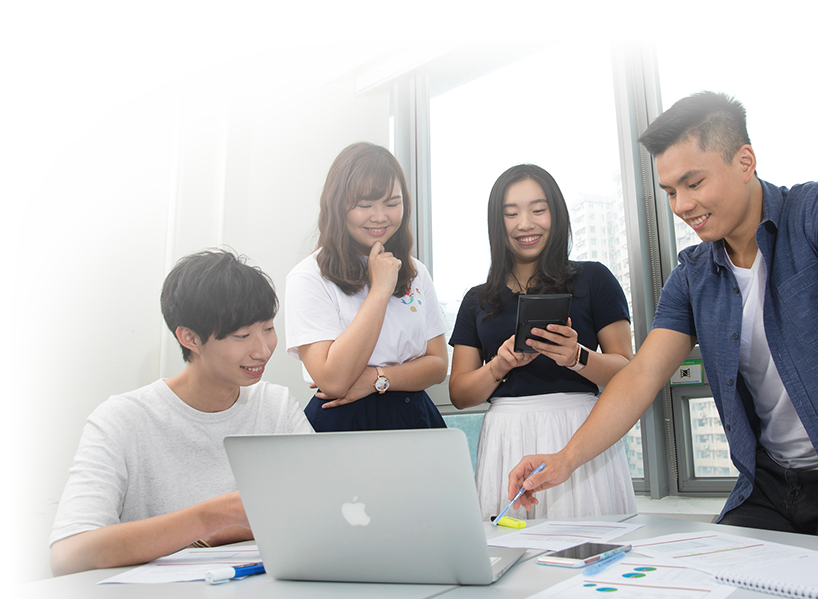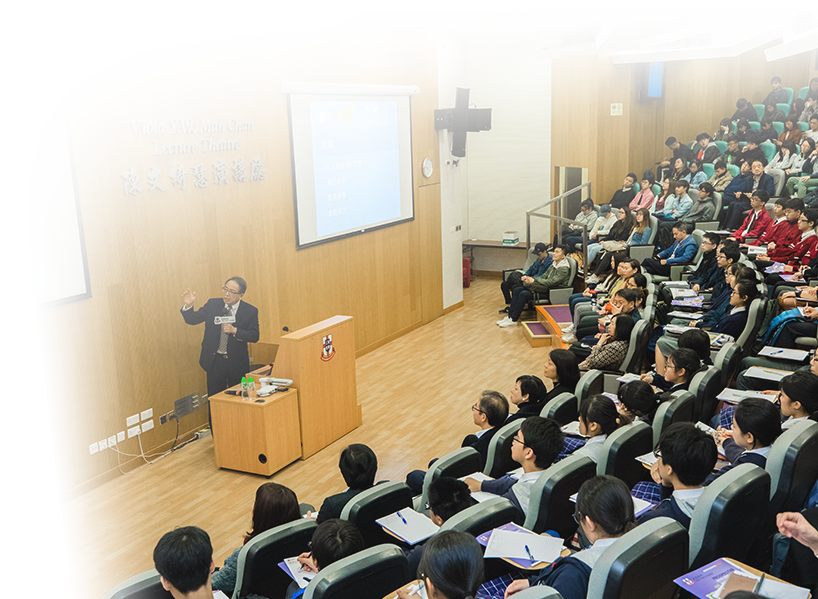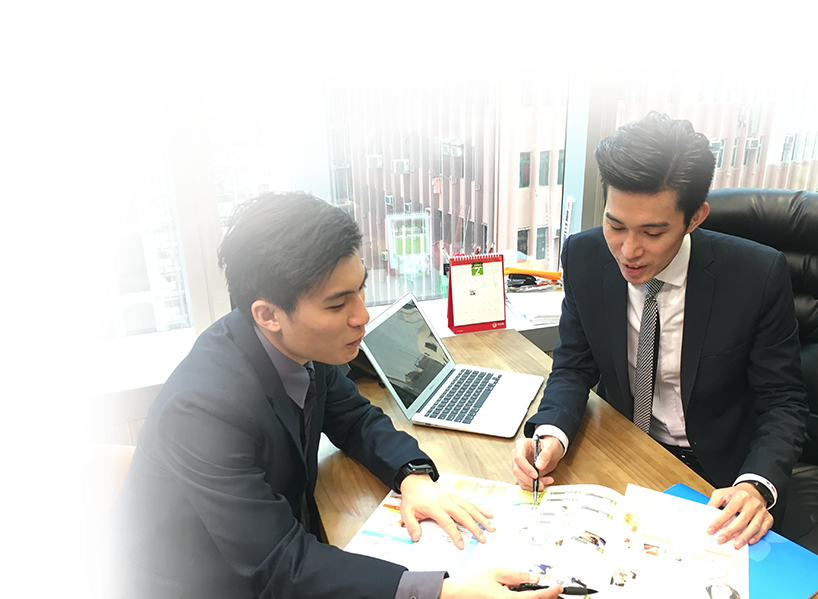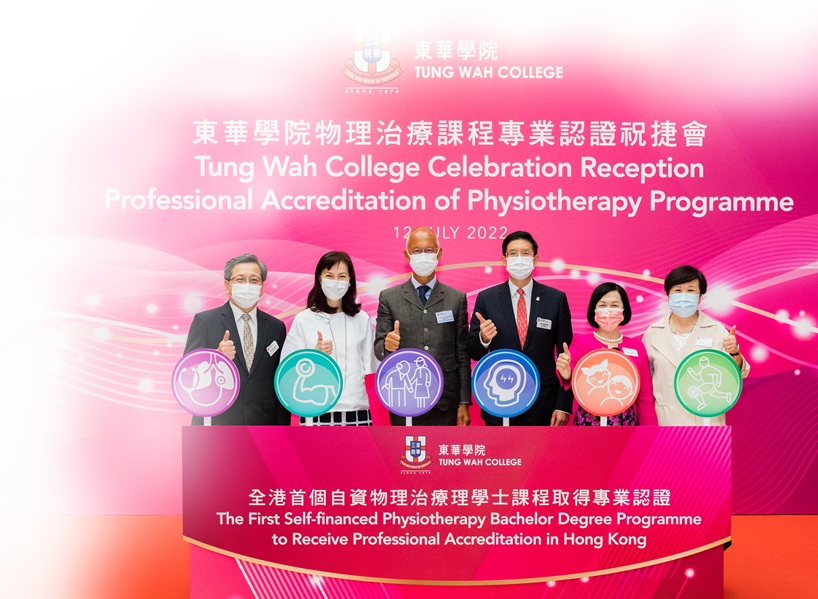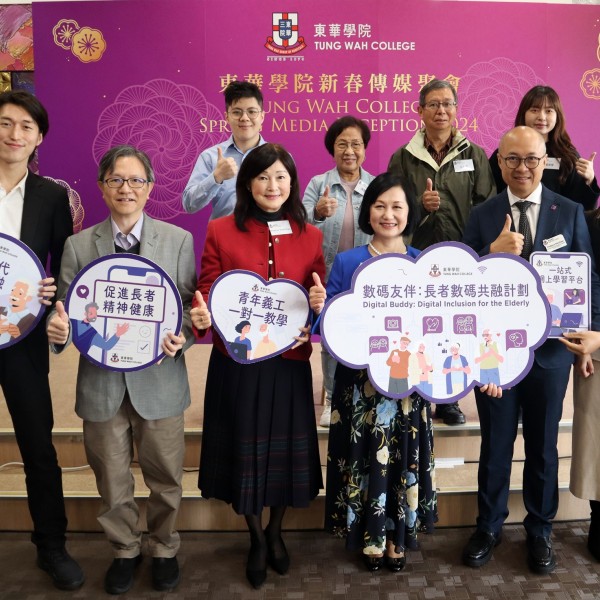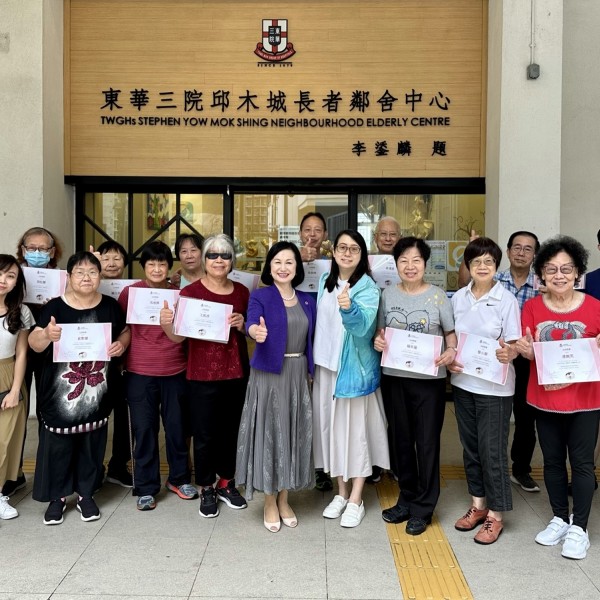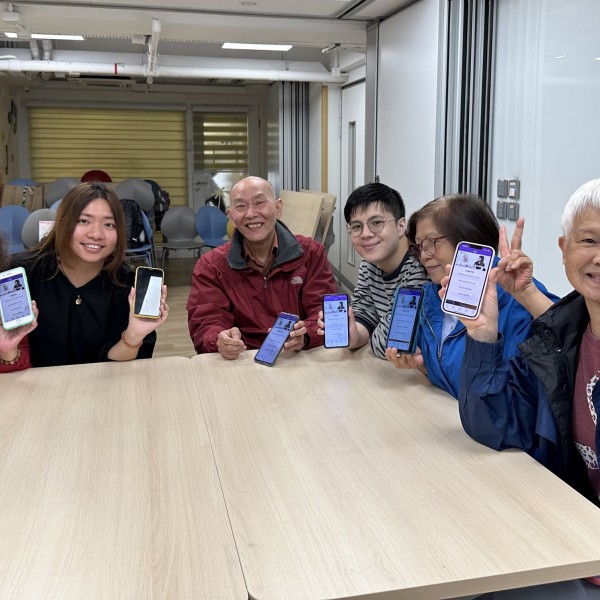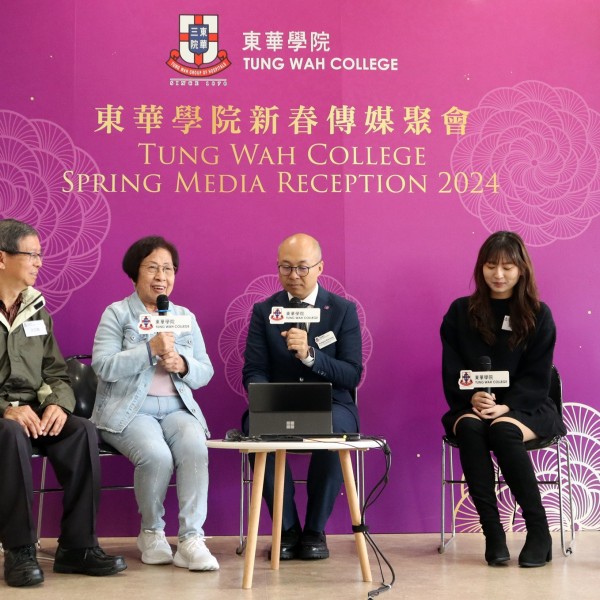In April 2022, Tung Wah College (TWC) launched a two-year “Digital Buddy: Digital Inclusion for the Elderly” Project (“the Project”). The Project recruited 157 TWC students as young volunteers (“Digital Buddies”) to offer digital technology applications and mental health training to 1,065 older people aged 60 and above. The project's effectiveness was assessed through questionnaires and interviews, and the findings revealed a significant improvement in mental health and depression symptoms among the older participants.
A survey conducted by the Government's Census and Statistics Department showed that there has been a substantial increase in internet usage among individuals aged 65 and above, rising from 66% in 2020 to 82% in 2022. Additionally, the adoption rate of smartphones within this age group has soared to 90%, marking a significant growth from 68% in 2020. These figures reflect the high smartphone penetration rate in the daily lives of older people.
One-stop e-learning platform to help older people utilise technology to enhance their mental well-being
Professor Sally Chan, the President of Tung Wah College and principal investigator of the Project, said, “The COVID-19 pandemic has accelerated the digitalisation of daily life and social activities. However, older people who lack digital technology knowledge are still facing challenges in adapting to the digital era. While the digital world offers opportunities for social connection, bridging the gap can be difficult and often leads to social isolation and adversely impacts mental health among the elderly. TWC aims to empower the elderly through the Project by equipping them with digital technology skills and providing mental health knowledge, to help them integrate into the digital society and improve their mental well-being. Furthermore, we strive to foster intergenerational integration by promoting understanding and interaction between young people and older people.”
The project team developed a one-stop e-learning platform featuring 73 informative videos on digital technology and mental health. These videos cover various topics, including application tutorials, teaching the older participants how to make video calls, search for online resources, manage social media, and health management applications. The platform also offers videos on mental health, emotional management, mindfulness, breathing exercises, and physical activities, enabling older participants to improve their stress, anxiety, and depression management capabilities. There are also self-assessment tools for their mental health status, self-efficacy, social support, and quality of life. As of January 2024, the platform's application has recorded 1,500 downloads and accumulated 7,224 views.
Young volunteers conduct mobile phone tutorials to assist older people to integrate into the digital society
The Project has spread across 11 districts and collaborated with 40 elderly care centers, district health centers, and non-profit organisations to provide digital training to 1,065 older participants aged between 60 and 91. For those who did not have any access to smartphones, the Project provided smartphones and data cards to enable them to obtain relevant information and training. Under the guidance of the “Digital Buddies,” the older participants learned basic digital skills in small groups during a total of 14 sessions, each lasting for 1.5 hours, over a period of three to six months. Moreover, the "Digital Buddies" created chat groups with the older participants using communication software, ensuring that they could receive support at any time and strengthen intergenerational communication.
To evaluate the project’s effectiveness, the project team conducted a questionnaire survey with 310 randomly selected older participants and divided them into an experimental group (155 people) and a control group (155 people). The average ages of the two groups were 70 and 78 years, respectively. Focus group interviews were also conducted with 31 older participants and 31 student volunteers to gain further insights into their learning and service experiences.
The depression score of participating elderly reduced by 17%
Significantly enhancing their mental health
The survey adopted “The World Health Organisation Five Well-Being Index” (WHO-5) and “Patient Health Questionnaire 9” (PHQ-9), which are widely used assessment instruments to measure current mental well-being and the severity of depression respectively. After six months of intervention, the evaluation results revealed that the average WHO-5 score for participants in the experimental group increased from 63 to 70, an improvement of 11%. The increase was 8% higher than the control group score of 65. The PHQ-9 score also decreased from 4.8 to 4, indicating a 17% reduction in depression symptoms and an overall enhancement in the participants' mental well-being.
The findings of the focus group interviews indicated the enthusiastic feedback from the participants, emphasising that their self-efficacy and confidence have increased. Some participants reported a significant reduction in anxiety when using smartphones and felt more confident in their smartphone skills compared to before participating in the Project. Older participants expressed that the Project enhanced their digital literacy skills, making it easier for them to search for health-related information using smartphones and reducing their reliance on others. Furthermore, the integration of digital skills and mental health knowledge helped raise awareness of mental health among them. They learned about mindfulness, brain health, and home exercises through the internet, developed an understanding of the importance of exercise for mental health, and improved their self-health management and emotional management capabilities.
The research team promotes intergenerational learning to create an inclusive society
Professor Sally Chan believed that the research results have demonstrated that the older people with enhanced digital skills will effectively improve their mental health. She recommended the government and organisations allocate more resources for providing long-term training on digital skills and mental health and developing a sustainable e-learning platform for the elderly. It will enable them to access information and receive support from more channels, keep pace with technological advancements, and actively engage in smart living. Professor Chan also highlighted the effectiveness of involving students as volunteers to teach older people. Leveraging their proficiency in digital skills, young volunteers can build trust with older people. She suggested that more opportunities should be created for intergenerational learning between the older people and the youth, fostering social networks among the older people, and promoting intergenerational integration.
Learning mobile applications
helps older people feel more secure
Ms. Helen Suen Wai Lin, an 85-year-old retired teacher and television actress known for her role as “Aunt Chan”, participated in the project. Being eager to learn, she started learning to use smartphones at other institutions years ago and later joined this project introduced by her friend. Ms. Suen shared, “After retirement, I often volunteered and visited elderly people living alone, that is the reason why I am particularly interested in mental health and emotional support. When I heard about this project from a friend, I thought it was different from traditional smartphone teaching classes. I could learn different applications and gain more knowledge about mental health while interacting with young people.” Despite her age, Ms. Suen believed that continued learning will help keep knowledge in mind, even though it is challenging for the elderly to retain the knowledge for a long time. After receiving the training, she discovered many “hidden” features of social applications, such as using voting functions to decide on gathering dates and learning how to block scam calls, which made her feel more secure when using smartphones. She also encouraged her friends to join the project, learn new knowledge, and expand their social network which will significantly improve their mental health.
Student volunteers foster empathy to facilitate
older people’s connection with the digital society
Mr. Andrew Cheung, a Year 4 student studying Bachelor of Science (Honours) in Applied Gerontology at TWC, served as one of the “Digital Buddies.” He mentioned that although he had many opportunities to interact with the older people during his practicum, participating in this project helped him gain a better understanding of the challenges the older people faced when using smartphones. For example, there were a variety of communication applications available on the market, which often confused them. They also have concerns about the internet security and accuracy of online information. Andrew mentioned, “The older people take a longer time to absorb new knowledge which is a challenge for them to keep up with rapidly changing technology. Through this project, I hope to guide my elderly buddies into the digital world, enabling them to connect with society. They know how to use video communication applications like Zoom and Facetime now to stay in touch with their families. They have also learned to acquire accurate health and current affairs information from the internet and even shop online using their smartphones.” He believed that the project has increased his empathy for older people, deepened his understanding of their mental health needs, and improved his skills in interacting and communicating with them. This valuable experience will benefit his future employment in the elderly care industry.
This Project received funding from Phase 1 of the Mental Health Initiatives Funding Scheme coordinated by the Advisory Committee on Mental Health.














